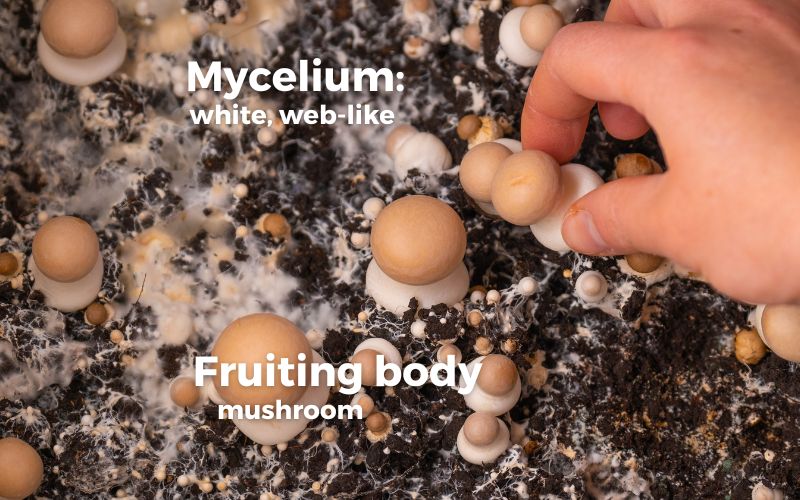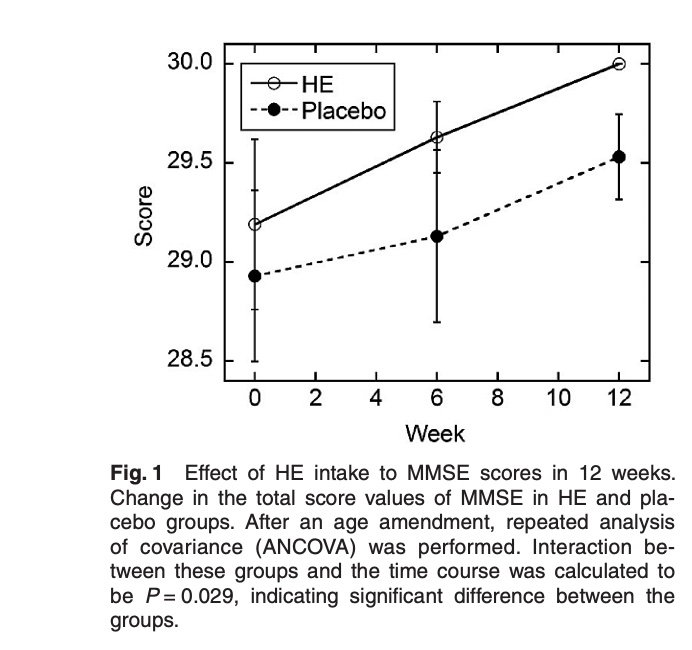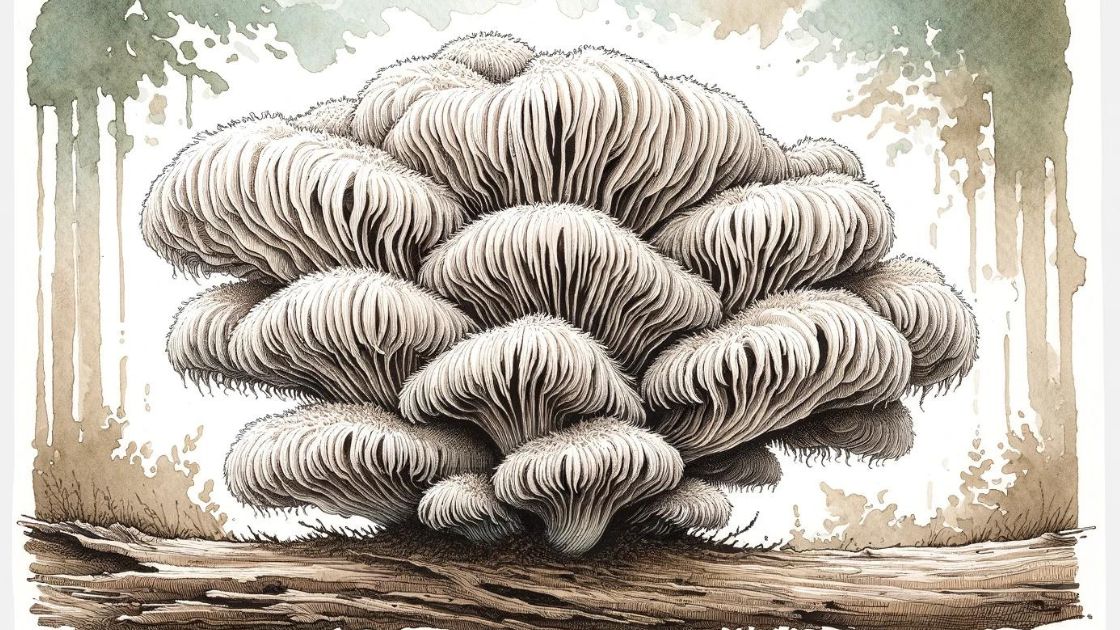Lion’s mane mushroom is a food and natural supplement with a number of potential health benefits. Some of the most well-researched benefits of lion’s mane mushroom extract include:
- Improved cognitive function
- Reduced depression and anxiety symptoms
- Increasing nerve regeneration
This article digs into the research studies on lion’s mane and then makes connections to possibly related genes.
What is lion’s mane mushroom?
Lion’s mane mushroom (Hericeum erinaceus) is a popular edible mushroom in Asian countries, such as China, Japan, Malaysia, Singapore, and Taiwan.[ref] While not as well known in the US or Europe, they are available in some areas as fresh mushrooms. Personal opinion: Lion’s mane is delicious fried with a little butter. Lion’s mane is also known as yamabushitake, monkey’s head, or H. erinaceus.
Most people, though, are interested in lion’s mane as a supplement in capsules or powder form. The benefits of lion’s mane may include increased neurogenesis, improved cognitive function, anti-inflammatory effects, and decreased depression or anxiety.
Lion’s mane contains phenols, β-glucans, and bioactive metabolites, such as erinacines, hericenones, alkaloids, and sterols.[ref][ref] [ref]
Mycelium vs. fruiting body: which is best?
What we think of as a mushroom is the fruiting body. It is the stalk and cap, which is the reproductive structure, that emerges when conditions are ideal. The mycelium is the part of the mushroom that is always growing, usually in the soil or in a dead tree.

There are some differences in the composition of the compounds found in the lion’s mane fruiting body vs. the mycelium. When you eat fresh lion’s mane as a mushroom, you’re consuming the fruiting body.
If you are considering different options for supplemental lion’s mane, one thing to look at is whether it contains just the powdered fruiting body, just the mycelium, or other options.
Whether it is better to go with the lion’s mane fruiting body or mycelium may depend on what your goal is for the supplement.
For the research studies and clinical trials below, I’ll make clear whether mycelium or fruiting body is being used in the study, when available.
Safety and Side Effects:
Lion’s mane has historically been consumed as a food in many regions of the world.
Clinical trials with supplemental lion’s mane powder and capsules at 3+ g/day note no adverse effects, suggesting that lion’s mane is safe for most people.[ref] (see the genetic interactions section for one possible exception)
However, talk with your pharmacist or doctor if you are on any medications to make sure that lion’s mane – or any supplement – is right for you.
If you are foraging for lion’s mane in the wild, be sure to know the similar-looking mushroom species and how to determine freshness.
Related Genetics Topic:
Ergothionine is one normally beneficial compound found in lion’s mane (and many other mushrooms) which acts as a powerful antioxidant.
However, ergothioneine exacerbates intestinal issues in people with IBD and a specific genetic variant in the OCTN1 gene:[ref][ref]
| Gene | RS ID | Effect Allele | Your Genotype | Notes About Effect Allele |
|---|---|---|---|---|
| SLC22A4 | rs1050152 | T | -- | Likely to be intolerant of ergothioneine (in mushrooms) with IBD |
Neuroprotective effects and cognitive benefits:
Lion’s mane mushroom has been found to have neuroprotective and neurogenesis effects, which means it helps protect the brain and nervous system from damage. Studies have shown that lion’s mane mushrooms can stimulate nerve cell growth and improve cognitive function. Cell studies show that the erinacines in the mycelium of lion’s mane may stimulate neurotrophic growth factors.
Let’s take a look at the research:
Clinical trial, 3,000 mg/day in mild cognitive impairment: A double-blind, parallel-group, placebo-controlled trial investigated the cognitive effects of Hericium erinaceus. The study included adults aged 50 -80 years who took 1,000 mg of dried lion’s mane (fruiting body) 3x/ day for 16 weeks. From week 8 to week 16, their cognitive performance scores increased. Their scores then began to decline four weeks after they stopped taking lion’s mane. No adverse effects were observed in the blood tests performed.[ref]
Clinical trial: A randomized, double-blind, placebo-controlled, parallel-group comparative study evaluated lion’s mane for cognitive function in people over the age of 50. The study used 800 mg of the powdered fruiting body for 12 weeks compared to a placebo. Cognitive function was assessed using three different tests, including the MMSE, which is commonly used in Alzheimer’s disease. The results showed improvements in scores that were greater than the placebo after 12 weeks.[ref]

Alzheimer’s patient trial: In a double-blind, placebo-controlled trial in people with mild Alzheimer’s disease, the results showed that lion’s mane was well tolerated and safe at a dosage of 350mg of lion’s mane mycelium 3x/day. The study lasted 49 weeks and Lion’s Mane did not cure Alzheimer’s disease.[ref]
Animal studies: Animal research is more impressive, but this may be due to differences in dosage or other factors.
Research in mice showed that lion’s mane mycelium helped reduce amyloid plaque aggregation and to delay cognitive degeneration in aging brains.[ref]
Studies also show that lion’s mane (fruiting body) increases nerve growth by increasing nerve growth factor.[ref]
Animal and cell studies clearly demonstrate the neuroprotective and cognitive benefits of H. erinaceus. Research suggests that it reduces inflammation by reducing activation of the NLRP3 inflammasome in an Alzheimer’s model and improves memory in human clinical trials.[ref][ref]
Related Genetics Topics:
Related Articles and Topics:
Alzheimer’s Gene: Find your APOE type from your genetic raw data

